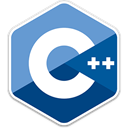Smalltalk Alternatives

Smalltalk
Smalltalk is an object-oriented, dynamically typed reflective programming language. Smalltalk was created as the language in underpinning the "new world" of computing exemplified by "human–computer symbiosis".
Smalltalk is an object-oriented programming language with a rich history and a storied legacy. It was born at Xerox PARC in the 1970s, created by the brilliant and visionary team of Alan Kay, Dan Ingalls, and Adele Goldberg. Smalltalk was created to investigate teaching programming to children. Understandably, it's a very small and simple language, the simplest of the major programming languages.
Smalltalk is a recursion on the notion of computer itself. Instead of dividing “computer stuff” into things each less strong than the whole?—?like data structures, procedures, and functions which are the usual paraphernalia of programming languages?—?each Smalltalk object is a recursion on the entire possibilities of the computer. Thus its semantics are a bit like having thousands and thousands of computers all hooked together by a very fast network.
And Smalltalk’s contribution is a new design paradigm? for attacking large problems of the professional programmer, and making small ones possible for the novice user. Object-oriented design is a successful attempt to qualitatively improve the efficiency of modeling the ever more complex dynamic systems and user relationships made possible by the silicon explosion.
There are several good Smalltalk dialects, such as Squeak, Pharo, and Dolphin Smalltalk (for Windows).
Best Smalltalk Alternatives for Linux
Are you still using Smalltalk? Let's compare it to the best other options below. Maybe one of these Smalltalk alternatives will work on your device, too.

Python
FreeOpen SourceMacWindowsLinuxS60BSDAROSHaikuAmigaOSOpenSolarisMorphOSPython is an interpreted, interactive, object-oriented, extensible programming language. It provides an extraordinary combination of clarity and versatility, and is free...
Features:
- High Level
- Object-oriented Language
- Dynamic typing
- Garbage Collection
- Modular System
- Object-oriented Language
- Rad

Java
Free PersonalOpen SourceMacWindowsLinuxWebAndroidJava MobileS60HP webOSBlackberryAndroid TabletBSDBlackberry 10PlayBookKindle FireJava is a general-purpose computer programming language that is concurrent, class-based, object-oriented, and specifically designed to have as few implementation...
Features:
- Object-oriented Language
- Coding
- Cross-platform
- Garbage Collection
- Object-oriented Language
- X86/x64 Compatibility

C (programming language)
FreeOpen SourceMacWindowsLinuxAndroidiPhoneAndroid TabletBSDiPadAROSAndroid WearHaikuPlaystationC is a general-purpose computer programming language. C is one of the most widely used programming languages of all time.
Features:
- Works at kernel level
- Compiled Language
- Inline assembly
- Manual memory management
- Systems programming

C++
FreeOpen SourceMacWindowsLinuxBSDC++ is a statically typed, free-form, multi-paradigm, compiled, general-purpose, powerful programming language. It is regarded as an intermediate-level language, as it...
Features:
- Compiled Language
- Systems programming
- Object-oriented Language

Ruby
FreeOpen SourceMacWindowsLinuxBSDHaikuRuby is a dynamic, reflective, general purpose object-oriented programming language that combines syntax inspired by Perl with Smalltalk-like features. Ruby originated...
Features:
- Blocks
- Dynamic typing
- Package Manager
- Text processing
- Interpreter
- Object-oriented Language

C#
FreeOpen SourceMacWindowsLinuxBSDC# is a multi-paradigm programming language encompassing strong typing, imperative, declarative, functional, generic, object-oriented (class-based), and...
Features:
- Compiled Language
- Object-oriented Language

Lua
FreeOpen SourceMacWindowsLinuxAndroidiPhoneAndroid TabletBSDiPadAndroid WearHaikuAmigaOSPlaystationMorphOSLua is a powerful, fast, lightweight, embeddable scripting language. Lua combines simple procedural syntax with powerful data description constructs based on...
Features:
- Scripting language
- Configuration
- Scripting

Perl
FreeOpen SourceMacWindowsLinuxBSDHaikuPerl is a high-level, general-purpose, interpreted, dynamic programming language with over 22 years of development. The Perl languages borrow features from other...

Go (Programming Language)
FreeOpen SourceMacWindowsLinuxBSDGo is an open source programming language that makes it easy to build simple, reliable, and efficient software.
Features:
- Compiled Language
- Class inheritance
- Object-oriented Language
- Performance Monitoring
- Test case management
- Readability

Rust
FreeOpen SourceMacWindowsLinuxBSDA systems programming language that runs blazingly fast, prevents almost all crashes, and eliminates data races. .
Features:
- Typesafe
- Compiler Explanations
- Package Manager
- Test case management
- Abstract Data Types
- Pattern matching
- Static typing
- Type inference
Upvote Comparison
Interest Trends
Smalltalk Reviews
Add your reviews & share your experience when using Smalltalk to the world. Your opinion will be useful to others who are looking for the best Smalltalk alternatives.